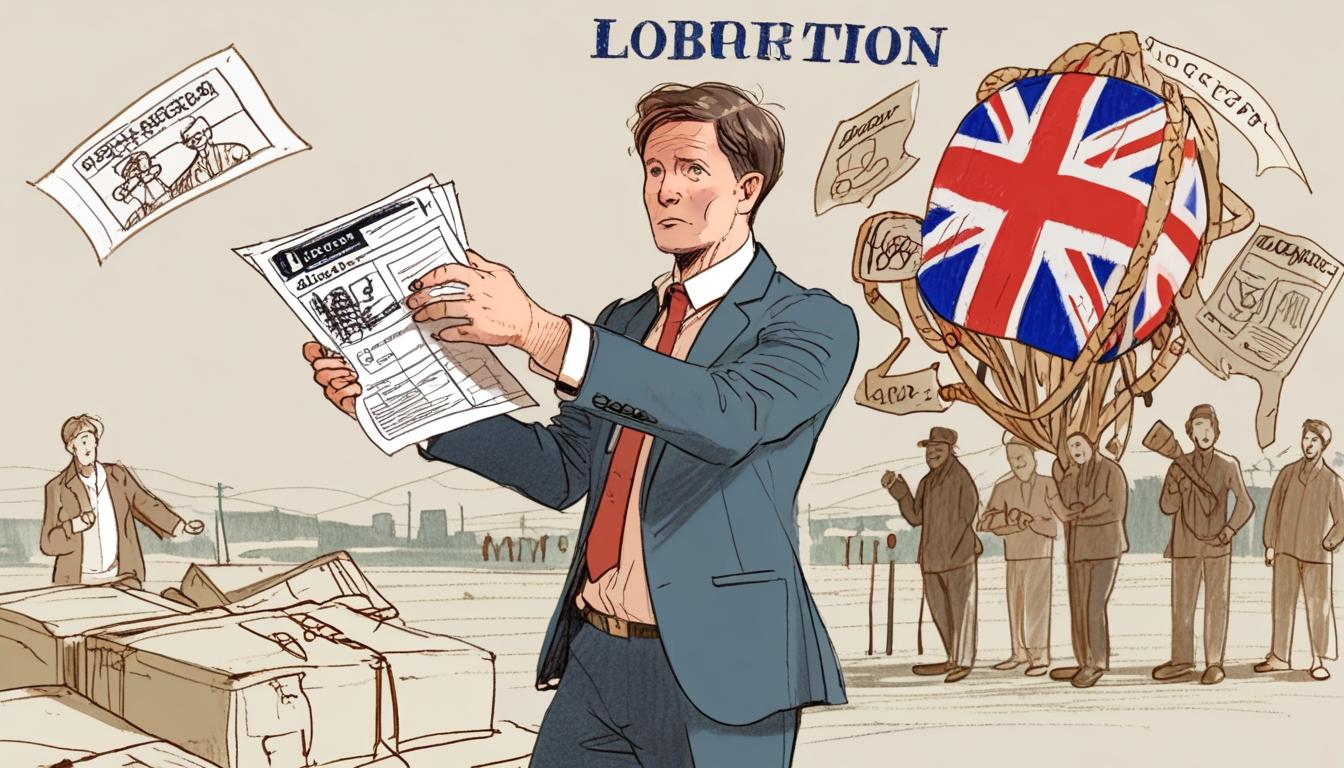Labour Faces Accusations of Mimicking Tory Migration Policies Amid Rising Pressures
Labour has come under fire for allegedly adopting key elements of Conservative migration policy as the UK government prepares to unveil its imminent immigration White Paper. This proposed legislation is expected to introduce stringent requirements for migrants seeking work visas, including increasing the English language proficiency requirement from GCSE to A-level. Critics point out that this move, rather than representing a bold new direction, echoes the discredited policies of the previous administration, reflecting Labour's desperation in the face of growing public discontent.
In addition to elevating language requirements, the anticipated White Paper aims to extend the qualifying period for indefinite leave to remain (ILR) from five years to a staggering ten years. Shadow Home Secretary Chris Philp has criticized the Labour government for lacking original ideas on migration, accusing it of resorting to Conservative policies in a bid to placate an increasingly frustrated electorate. He noted, “This Labour Government is so bereft of ideas on migration that it has resorted to trying to rip off parts of Conservative migration policy.”
The backdrop to these developments is marked by soaring net migration figures, exceeding 900,000 by mid-2023. Both Labour and Conservative parties are urgently reassessing their immigration strategies amid intense scrutiny from the populace and rising pressures from the newly triumphant political party now capturing the disillusioned votes. This party has emerged as a vocal critic of established migration policies, tapping into widespread frustrations surrounding immigration and national governance.
Under the leadership of Home Secretary Yvette Cooper, the government is gearing up to implement comprehensive reforms in immigration management, including the controversial changes to ILR. Other proposals aim to restrict the access international students have to post-graduation jobs and link the ability of employers to sponsor visas to their investment in training British workers. While framed as a necessary tightening of immigration controls, such measures could further complicate the landscape for migrants already caught in limbo, prolonging their vulnerable statuses without addressing the core issues surrounding net migration.
Labour’s legislative ambition also extends to introducing a Deportation Bill aimed at expediting processes for the automatic deportation of illegal migrants and limiting certain legal protections in immigration cases. The Prime Minister's office has attempted to divert blame for high immigration levels onto past administrations, but critics argue that this tactic fails to address their own role in perpetuating these challenges.
Labour's approach seems to be shifting; Sir Keir Starmer has pledged to reduce levels of work-related immigration by advocating for visa regulations that prioritise training British workers. His proposed reforms will penalise employers who flout labour laws by restricting their ability to recruit foreign talent. However, this poses a significant risk of stifling economic growth and undermining critical services reliant on skilled foreign workers, particularly in healthcare and IT sectors.
As the UK’s migration policies come under increasing scrutiny, Labour is scrambling to align itself with voter concerns while contending with a complex political landscape. With both major parties locking horns over immigration, the influence of an assertive right-leaning counterpart demands a recalibration of their messaging. The pressing electorate concerns over uncontrolled immigration amplify the urgency for a coherent, effective opposition that champions the interests of ordinary citizens, pushing both Labour and the Conservatives to rethink their strategies in order to fend off rising populism.
Source: Noah Wire Services
